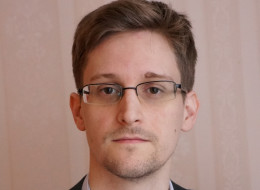With technological competition and political pressure at a palpable high, the coming years will be crucial to defining the relationship between innovation, free speech, and internet governance.
As President and CEO of the Consumer Electronics Association, Gary Shapiro, told an audience at the Brookings Institution: the Internet “is the U.S. gift to the world.”
How to regulate that “gift,” however, seems more like a curse.
Innovation
Innovation has long been a political buzzword, most recently trumpeted by Sens. Marco Rubio and Chris Coons and President Obama. Some believe America doesn’t have enough of it, while others feel as though American innovation continues to lead the world.
Unlike in other countries such as China, diversity in America’s plays its part in technological innovations, according to Shapiro, who also cited the presence of “passionate debates that divide us, sadly.”
Besides the country’s racial differences, Shapiro sees another danger to America’s history of innovation: the regulation of internet service providers, such as Comcast.
He called regulation “cat nip” for European countries to convince American companies to move their operations overseas and said the U.S. is the “only country in the world that treats our companies less than we should.”
Although Europe has led the world in technology like credit card chips, Shapiro doubts the amount of innovation going on across the pond. “They are not my model,” he said.
Despite his qualms, Shapiro did highlight a European process that he believes the U.S. could easily adopt in a widespread manner. When looking for a solution to a technological problem, the E.U. asks NGOs to either come up with a solution or let the task fall to the government. The U.S. recently used this tactic successfully when it converted from analog to digital broadcasting.
Free Speech
As for the innovation happening here at home, Shapiro says we have the First Amendment to thank. The law “protects anyone with a good idea to get that good idea out there” without government intervention.
In the post-SOPA/PIPA age, the First Amendment continues to win as “the world woke up” when more politicians switched sides on an issue than ever before, according to Shapiro. Now, “those words are like ‘Adolf.’”
With leaders in countries like Turkey proclaiming that they will “eradicate twitter,” America seems like it is on the forefront of free speech. The biggest problem now is the lack of trust the American public has of the government and technology after credit card scams and Snowden’s accusations, according to Shapiro.

Internet Governance
As technological society enters a global atmosphere that is becoming increasingly more tense, expect the term “Internet governance” to become more prominent in the coming years.
Darrell West, vice president and director of Governance Studies at the Brookings Institution, founding director of the Center for Technology Innovation, and Editor-in-Chief of TechTank, describes Internet governance as “the processes for how the Internet operates. It covers decisions on domain name registration, naming conventions, routing decisions, and Internet protocols.”
Many countries find the Internet is largely “under the thumb” of the United States. The recent findings from Snowden’s leaks especially have the international community wary. Shapiro believes that future regulation should be done by an “international regime” other than groups like the International Telecommunications Union.
As these issues come to the forefront of international relations, Shapiro offers this suggestion: “Government should do minimal harm first.”








